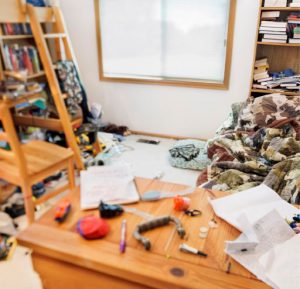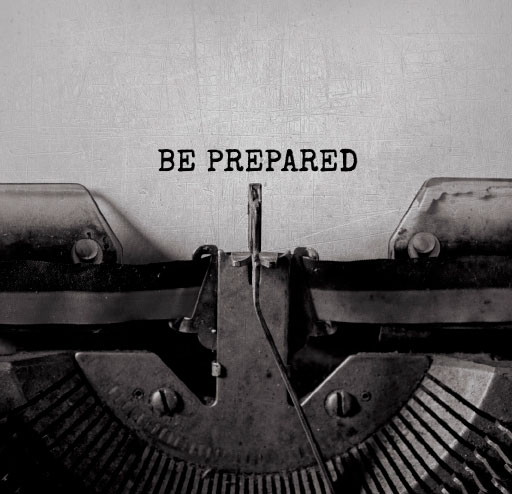Download a printable copy of this article (PDF 410KB)
 One of the most common complaints of parents and carers is that children have a messy bedroom. This can particularly come into play when raising a teenager. Part of the pattern of failed attempts in the clean bedroom endeavour is entirely your own creation. It’s because you keep speaking to big concepts, such as responsibility, such as respect, such as tolerance and hoping that your child will get it. There is a problem in getting your children to clean their room because you are not being specific enough about what you want.
One of the most common complaints of parents and carers is that children have a messy bedroom. This can particularly come into play when raising a teenager. Part of the pattern of failed attempts in the clean bedroom endeavour is entirely your own creation. It’s because you keep speaking to big concepts, such as responsibility, such as respect, such as tolerance and hoping that your child will get it. There is a problem in getting your children to clean their room because you are not being specific enough about what you want.
This has been illustrated brilliantly by the behavioural scientist Darren Hill, who talks about the language you need to deploy when relationships become a little dysfunctional. Hill speaks to the presence of both trust and conflict in those relationships and how there’s a trade off between the two. When trust is low and when conflict is high, Hill says to us we need to start incredibly specifically. Hill refers to these as being Content Behaviours. Content Behaviours are so specific that we can clearly tell whether we did them or didn’t do them. They are unmistakably binary.
“You cannot hope to build a better world without improving the individuals. To that end, each of us must work for his own improvement and, at the same time, share a general responsibility for all humanity, our particular duty being to aid those to whom we think we can be useful.”
– Marie Curie
Hill’s theory causes me to reflect on myself as a 15-year-old and my relationship with my Mum. If I’m honest about our relationship in that period, it was heavy on conflict and very light on trust. This was because I wasn’t doing anything trustworthy and it meant my Mum couldn’t ask me to fulfil large, broad, behavioural labels such as responsibility. The breakdown was one of definition – and my definition of responsibility was “do whatever you like, but don’t break anything”. Mum’s was that I would put my lunchbox away, I would put my bag in my bedroom, I would mow the lawn, do some homework and that I would do all of these things after school before I went outside to play cricket in the street.
What was Mum so cleverly up to by being so specific? She was looking for one thing to thank, congratulate or acknowledge me for which is really the ideal way to build trust in any relationship.
When you step up from Content Behaviours you can start using simple labels for small sets of behaviours. Hill calls these Context Behaviours. At this stage you might be able to say to your children, “It’s time for our bedtime routine.” The label of bedtime routine might trigger around three behaviours such as changing into their pyjamas, brushing their teeth and reading in bed for twenty minutes. There might be three very distinct, very laid out behaviours within the “bedtime routine” label but you can’t achieve the label without success, thanking, congratulating and acknowledging at the Content Behaviour level first.
The point of success with Content Behaviours is when you can finally start to talk in terms of what Hill calls Traits. By now, trust is high and conflict over what behaviours comprise these traits has dissipated. Now that each of you knows what the other means, you can use broad terms like responsibility, respect, honesty, gratitude and tolerance.
The problem in our homes, and indeed in our schools, is that we keep talking about these big words and hoping that children will know what we mean by them specifically. We need to work in the other direction by starting with the specifics and as they achieve success at this level, move on to the broader concepts.
References
Pragmatic Thinking for more on Darren Hill’s work.
Bibliography: Pragmatic Thinking | Leadership and Management. (2019). Pragmatic Thinking | Leadership and Management. [online]
Available at: https://www.pragmaticthinking.com








